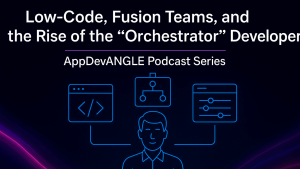During his presentation at AWS re:Invent 2024, Amazon CEO Andy Jassy provided a comprehensive view of how Amazon is leveraging artificial intelligence (AI) across its businesses to solve customer problems and drive innovation. His keynote highlighted Amazon’s focus on productivity, customer experience, and cutting-edge AI advancements. We believe that firms like Amazon have unparalleled opportunity to apply AI internally at massive scale and transfer these learnings into customer solutions.
The highlight of Jassy’s remarks included new foundation models that Amazon is introducing to compete with leading industry LLMs. Below, we summarize and analyze the key themes and announcements from Jassy’s presentation.
AI for Customer-Centric Problem Solving
Jassy emphasized that Amazon’s use of AI is rooted in addressing real-world challenges. The company is not focused on building AI to surpass human accomplishments like mastering chess but rather on creating practical solutions for customer needs.
- Retail Use Cases:
- AI powers personalized recommendations, walkout retail stores, and customer service experiences.
- Amazon rebuilt its previously uninspiring chatbots with generative AI (GenAI) to deliver dynamic interactions, including predicting return needs and detecting customer frustration. This has driven a 500 basis point improvement in customer satisfaction.
- AI models optimize fulfillment center operations by improving inventory accuracy by 10% and regional prediction accuracy by 20%.
- Robotics in Fulfillment:
- Over 750,000 robots operate in Amazon’s fulfillment centers. The GenAI-powered Sparrow system enables faster sorting by understanding material properties and optimizing item placement, leading to a 25% improvement in processing times at centers like Shreveport, LA.
Analysis: Amazon’s focus on applying AI to practical use cases, such as improving customer satisfaction and operational efficiency, underscores its strategy of leveraging technology to drive measurable business outcomes inside Amazon. An opportunity exists for Amazon to “productize” its internal learnings in logistics, supply chains, sustainability, ecosystem management, etc. and, as it did with AWS, bring these solutions to external customers. Amazon is in a strong position to re-imagine workflows and developing modern agentic automation solutions that can be brought to market through AWS and other partner channels.
AI as a Strategic Building Block
Jassy identified three key themes shaping AI strategies:
- Cost of Compute: Scaling AI requires affordable compute power, and AWS is investing in solutions that deliver superior price-performance.
- Complexity in Building GenAI Applications: Latency, fluency, and cost must be optimized for effective GenAI applications and this is challenging for customers.
- Model Diversity: With growing demand for specialized and generalized models (e.g., Claude, Llama, AWS models), Jassy highlighted the importance of offering customers choice and flexibility.
The Amazon Nova Family: Competitive Foundation Models (FMs)
Jassy announced the Nova Family of foundational models, setting a competitive benchmark in price-performance and versatility.
- Nova Models:
- Nova Micro (text-only, lowest latency)
- Nova Lite: Affordable, low-latency multimodal model for basic image, video, and text tasks.
- Nova Pro: A balanced multimodal model optimized for speed, accuracy, and cost.
- Nova Premier (available Q1 2025): A highly capable model designed for complex tasks and model distillation.
- Specialized Applications:
- Nova Canvas: State-of-the-art image generation model with strong benchmarks against DALL-E 3 and Stable Diffusion 3.5.
- Nova Reel: Advanced video generation model with features like zoom, rotation, and watermarking. Initially supports six-second videos, with plans to expand to two-minute videos.
- Roadmap:
- Q1 2025: Speech-to-speech models.
- Mid-2025: Multimodal-to-multimodal models capable of processing and outputting text, speech, image, and video.
Analysis: Jassy’s philosophy has always been to have a variety of choices for customers to maximize flexibility (right tool for the right job). This is underscored by AWS’ long time strategy of providing building blocks in the form of cloud service primitives. AWS appears to be applying its proven playbook of giving customers choice and filling gaps (price performance and otherwise) with internally developed solutions. Graviton is an example and AWS is extending that strategy to GPUs with Trainium instances that are more cost effective than Nvidia solutions.
By announcing new foundation models, Amazon is signaling its commitment to innovating at the highest levels of excellence. Amazon’s hinted roadmap signals that the firm is still playing catchup in the FM race but intends to be a serious player. Questions remain as to how Nova is positioned relative to Anthropic. Our belief is that Anthropic will remain a favored frontier model and Nova will be applied to specific use cases.
Another question is whether Nova is distinct from the rumored Olympus FMs, which were some believed were focused on video-heavy use cases. Nova appears to be more broad-based. Olympus was rumored to have 2 trillion parameters and it’s not clear what the specific parameter counts are for Nova.
It’s entirely possible that elements of the Olympus project have been incorporated into or influenced the development of the Nova models. But Nova models appear to be separate and more comprehensive than a rebranding of the rumored Olympus models.
Update: theCUBE Research has confirmed that Nova is the result of what was codenamed Olympus.
AI-Powered Innovation Across Amazon
Jassy showcased how AI innovations extend beyond AWS to Amazon’s core retail and logistics businesses.
- Retail Operations:
- Transformer models improve inventory prediction and regional demand forecasting.
- Robotics, like Sparrow, optimize sorting and aggregation processes, driving substantial efficiency gains.
- Customer Engagement:
- GenAI-based chatbots enhance customer service by predicting needs and reducing friction.
- The new Rufus Shopping Agent aims to assist customers in discovering products when their needs are unclear.
Analysis: These examples highlight Amazon’s ability to integrate AI across its operations to enhance both efficiency and customer experience, setting a standard for AI-driven transformation. Big tech companies are in a unique position to lead the way in applying AI. The key challenge will be if and how Amazon chooses to extend these internal innovations to build solutions for external customers.
Strategic Perspective on AWS AI
AWS’s AI strategy is underpinned by its philosophy of offering breadth and depth, ensuring customers have access to the best tools for their needs.
- Infrastructure and Compute Leadership:
- AWS’s partnerships with NVIDIA and its investments in custom silicon (e.g., Trainium, Inferentia) enable competitive price-performance for AI workloads.
- Choice and Flexibility:
- AWS’s support for diverse models (open-source, proprietary, and partner-developed) ensures customers can choose the right solution for their requirements.
- Deep Integration:
- Nova models are deeply integrated across AWS services, enabling seamless adoption and fine-tuning capabilities.
Analysis: By combining infrastructure innovation with a flexible approach to AI models, AWS reinforces its leadership in the cloud AI market. The Nova family’s competitive pricing and integration across Bedrock and other AWS services highlight its customer-centric strategy.
Conclusion
Andy Jassy’s keynote at re:Invent was a focused throwback to early re:Invent keynotes where Jassy demonstrated a command for customer challenges, business issues and technical depth. Jassy hasn’t lost his fastball and this section of the keynote did not disappoint. In classic Jassy fashion he unleashed a fireehose of innovations with conviction that was compelling. His 2024 remarks showcase Amazon’s broad-based approach to AI. From transforming its retail operations to launching new foundational models like Nova, Amazon demonstrates its commitment to leveraging AI for solving practical problems, and while not stated explicitly, driving greater profitability in its massive retail business. Observers and naysayers of AWS’s strategy should not be fooled by AWS’ perceived delayed response to the GenAI wave. AWS’ emphasis on model diversity, cost efficiency, and deep business integration positions it as a leader in the evolving AI opportunity. We believe Amazon’s hands on investments in GenAI and foundational models will play an important role in keeping Amazon at the forefront of future AI innovations.



